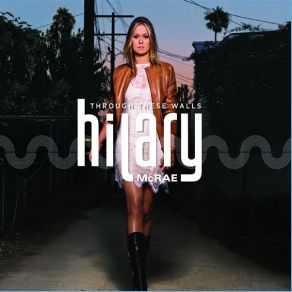Through These Walls
Download links and information about Through These Walls by Hilary McRae. This album was released in 2008 and it belongs to Rock, Pop, Songwriter/Lyricist, Contemporary Folk genres. It contains 12 tracks with total duration of 45:04 minutes.

|
|
|---|---|
| Artist: | Hilary McRae |
| Release date: | 2008 |
| Genre: | Rock, Pop, Songwriter/Lyricist, Contemporary Folk |
| Tracks: | 12 |
| Duration: | 45:04 |
| Buy it NOW at: | |
| Buy on iTunes $7.99 | |
| Buy on iTunes $9.99 | |
Tracks
[Edit]| No. | Title | Length |
|---|---|---|
| 1. | Every Day (When Will You Be Mine) | 4:03 |
| 2. | Consider Me Gone | 4:26 |
| 3. | Why Can't Now | 3:00 |
| 4. | Love Song for You | 3:46 |
| 5. | Hostage | 4:06 |
| 6. | Like You Never Loved Me | 3:34 |
| 7. | Better Off Alone | 3:26 |
| 8. | Let's Stop | 3:52 |
| 9. | Only Light | 3:33 |
| 10. | Waiting | 4:09 |
| 11. | Somethin's Come Over Me | 2:56 |
| 12. | Where Will We Be | 4:13 |
Details
[Edit]A 21-year-old graduate of Boston's Berklee College of Music with a deep, resonant voice somewhere between Melissa Etheridge and Nina Simone, Hilary McRae debuts on Starbucks' in-house label Hear Music with an appealing but somewhat limited disc heavily influenced by '70s AM radio pop. Unexpectedly for an artist born in the '90s, McRae counts Nixon-era hitmakers Chicago as one of her major influences, and although most reviewers will trot out the likes of Carole King, Laura Nyro, and jazz-era Joni Mitchell as musical touchstones — not without reason — it's the Chicago comparison that keeps returning throughout Through These Walls. Although arranger Charlie Calello never worked with the horn-rock superstars himself, his '60s and '70s tenure as a staff arranger and producer at their label Columbia Records (working with everyone from Blood, Sweat & Tears to Bruce Springsteen) is the key musical connection to that era for this album, and his defiantly old-school brass and string charts power songs like "Why Can't Now Be Our Time," which sounds so uncannily Chicago-like that most listeners of a certain age will start checking the sleeve for a tell-tale Roman numeral, and the slinky R&B groove of "Only Light." Songs like that are impressive in their fond re-creation of a musical style more often treated with polyester-leisure-suit mockery, but McRae seems so committed to that musical era that it becomes hard to tell what Through These Walls offers to those less besotted with the sound of the '70s. Particularly with the marketing power of Starbucks behind her, Hilary McRae may well make a mainstream splash on the level of, say, Joss Stone — suffice to say, McRae is quite lovely — but Through These Walls is musically oriented largely towards aging baby boomers who like to complain about the music of These Kids Today. That's probably not a good niche to get stuck into for one's long-term artistic health.